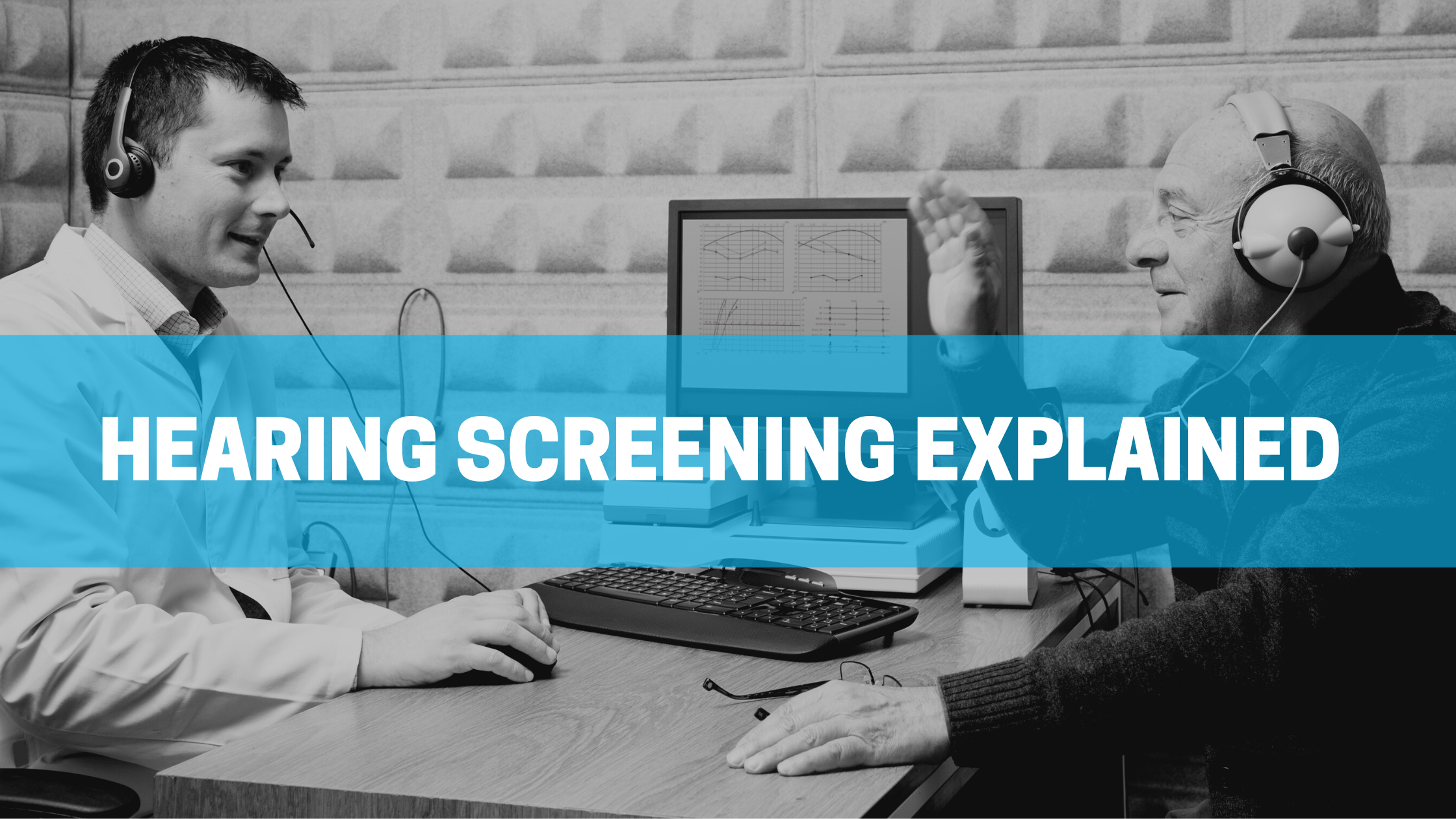
Why hearing screening and what now?
Hearing screening is done to determine the risk of hearing loss and to identify whether you may benefit from further assessment. During your screening test a few sounds are presented at different pitches and loudness. These sounds are a range of different frequencies to determine what sounds you were able to hear and perhaps sounds you could not hear. The test has a PASS or REFER criteria. If you could hear all the sounds that were softer than 20dB, you passed the screening. If you did not hear the sounds below 20dB, the results would indicate a refer and further diagnostic testing would be necessary. If a refer result is found, it would be suggested to have full hearing test.
What to know about hearing screening
Important aspects to know about hearing screening: It does not have to be done in a sound proof or sound treated area, the test takes the environmental noise into account. A screening test is not inaccurate or inferior as compared to diagnostic testing, both serves its purpose as long as it is interpreted as such. A diagnostic assessment would be more comprehensive, sensitive and can determine where in the ear mechanism or pathway the problem is, should a problem be found.
The World Health Organization has estimated that worldwide there are 1 billion young adults at risk of developing a hearing loss, that could have been prevented. It is important to keep healthy hearing habits by not exposing yourself to loud noises such as music through headphones, prolonged headphone use or occupational noise. Below there are a few potential causes of hearing loss listed, our general health plays an important role in our hearing. If you are worried about one of these potential causes, please consult with your audiologist.
Potential causes of hearing loss
ADULTS: Diabetes | Noise exposure | High blood pressure | Heart diseases | Autoimmune disorders | Certain medications | -Genetics
CHILDREN: Genetics | Preterm birth or low birth weight | Chronic middle ear infections | Meningitis or other infections | Noise exposure
The recommendation
Prevention of hearing loss is important. Good prevention strategies are to have your hearing screening done annually if you have a risk factor or when there is a sudden change in your hearing abilities. An existing hearing loss cannot be prevented but the earlier treatment is started, the sooner you will experience a better quality of life. Your hearing healthcare professional conducted the screening discussed the results with you. If a refer result were detected we recommend a diagnostic hearing assessment to confirm the presence of hearing loss and to determine the degree, type and possible cause of deterioration. If no indication of hearing loss was found, therefore no further testing is required immediately. We do recommend an annual hearing test.
Possible consequences of untreated hearing loss
ADULTS: Risk of dementia | Cognitive decline | Social anxiety | Balance problems | Depression | Isolation
CHILDREN: Speech & Language Delays | Poor academic performance | Social problems | Balance problems
If you suspect hearing loss or if it was recommended that you undergo a full diagnostic hearing assessment – it is crucial that you co so – contact us today!
centurion@yvdwaudiology.co.za | benoni@yvdwaudiology.co.za | saxby@yvdwaudiology.co.za
012 653 3830 | 011 425 0171 | 087 944 1803
